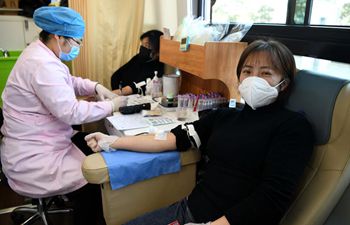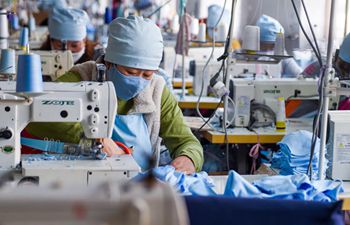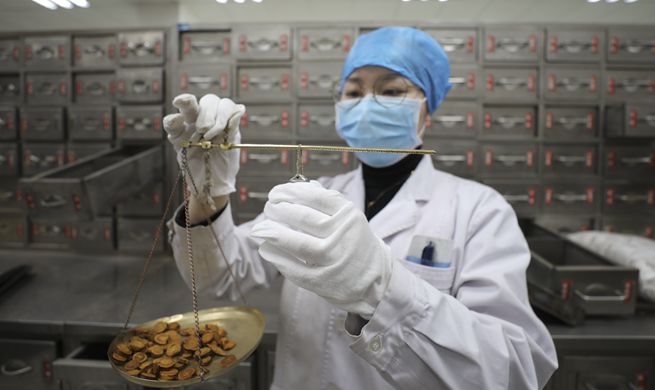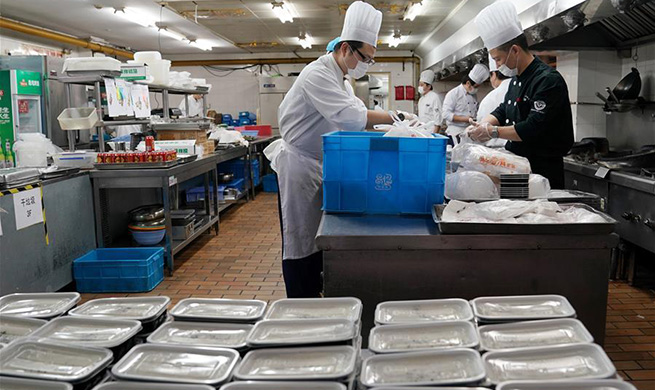TOKYO, Feb. 19 (Xinhua) -- Core private-sector machinery orders in Japan fell in December from a month earlier, the government said in a report on Wednesday.
According to the Cabinet Office, orders in the recording period dropped 12.5 percent from the previous month, marking the largest drop in 15 months.
The orders, excluding those for ships and from utilities because of their volatility, came to 824.84 billion yen (7.48 billion U.S. dollars), the office said.
The latest reading follows an 18.0 percent surge in November, which marked the biggest increase in orders since comparable data became available, the government's data showed.
While December's drop marked the sharpest decline since September 2018, when orders slumped 17 percent, the Cabinet Office opted to maintain its assessment of orders, saying they are "stalling."
Orders from manufacturers increased 4.3 percent to 372.56 billion yen (3.38 billion U.S. dollars), the Cabinet Office said, while those from non-manufacturers, excluding ships and electric utilities, tumbled 21.3 percent to 465.96 billion yen (4.22 billion U.S. dollars).
Overseas orders, which act as a barometer of future exports, however, rose 2.4 percent to 795.09 billion yen (7.21 billion U.S. dollars), with the figure coming on the heels of an 11.5 percent decline logged in November, the Cabinet Office said.
Total orders, including those in the public sector, dropped 9.7 percent to 2.11 trillion yen (19.14 billion U.S. dollars), the office also said.
Core orders declined 0.7 percent to 10.43 trillion yen (94.63 billion U.S. dollars) for the whole of 2019, marking the first decline in two years, the government's data showed.
Machinery orders are a key advance indicator for corporate capital spending and the government uses the data to predict the strength of business spending in a six to nine month period ahead.
A rise in capital expenditure can boost the economy as Japanese companies are producing more machinery to meet rising demands from overseas markets.
A drop, however, as was the case in the latest recording period, has the opposite effect and weighs on the economy and can see production at best tapered or at worst significantly reduced.
Such business investment accounts for roughly 15 percent of Japan's gross domestic product.
Types of machinery included in the monthly government survey comprise engines and turbines, heavy electrical machinery, electronic and communication equipment, industrial machinery, machine tools, railway rolling stock, road vehicles, aircraft, ships, water crafts, as well as sub types in those categories.













